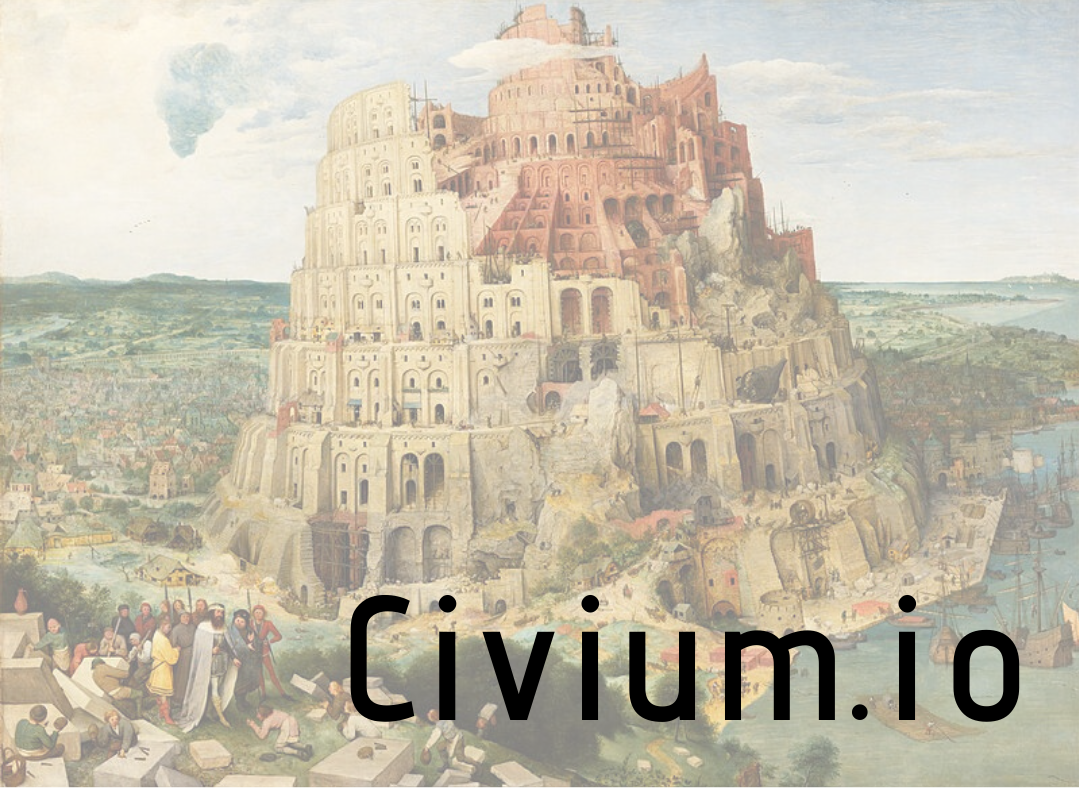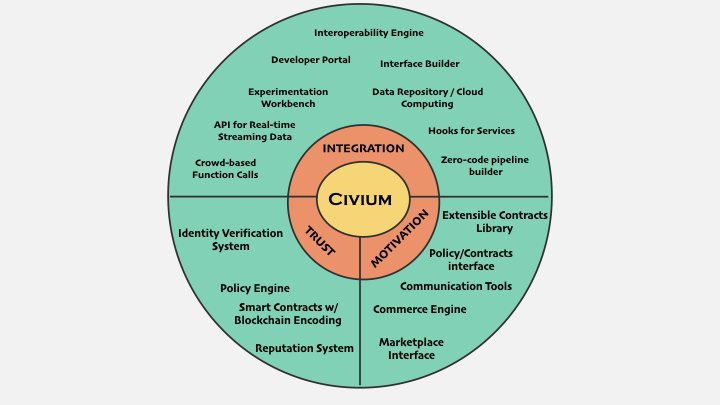Today, applying HCOMP to a major societal problem is a “high risk / high reward” enterprise. It requires a substantial investment of time and money and has a low probability of success. There is no straightforward integration path for linking AI and human-based processing components, there is no mechanism for workflow automation, data pipelines are hobbled together via manual researcher interventions and custom-built adapters, there’s a lack of modularity and reuse at transferrable levels of granularity, and there’s no standard approach for validation methods or data quality assurance.
What if we had a way to infuse projects with revenue to help sustain their operations? The barriers to progress described above exist within a larger ecosystem of stakeholders, all of whom are invested in new data science methods and their applications. Each stakeholder brings their²⁸ own set of challenges and related needs, but also brings potential solutions for other stakeholders. This complementarity of needs and offerings suggests a latent economy.
Toward these ends, the Human Computation Institute is leading the development of Civium, an integration platform and commerce engine for sustainable human computation. The purpose of Civium is to streamline information processing for the advancement of science and to commoditize cognitive labor and its products toward a new thinking economy. For citizen science practitioners, this could reduce development time and operating costs, enable rapid community engagement, and create revenue opportunities that help sustain projects.
Read more about Civium:




